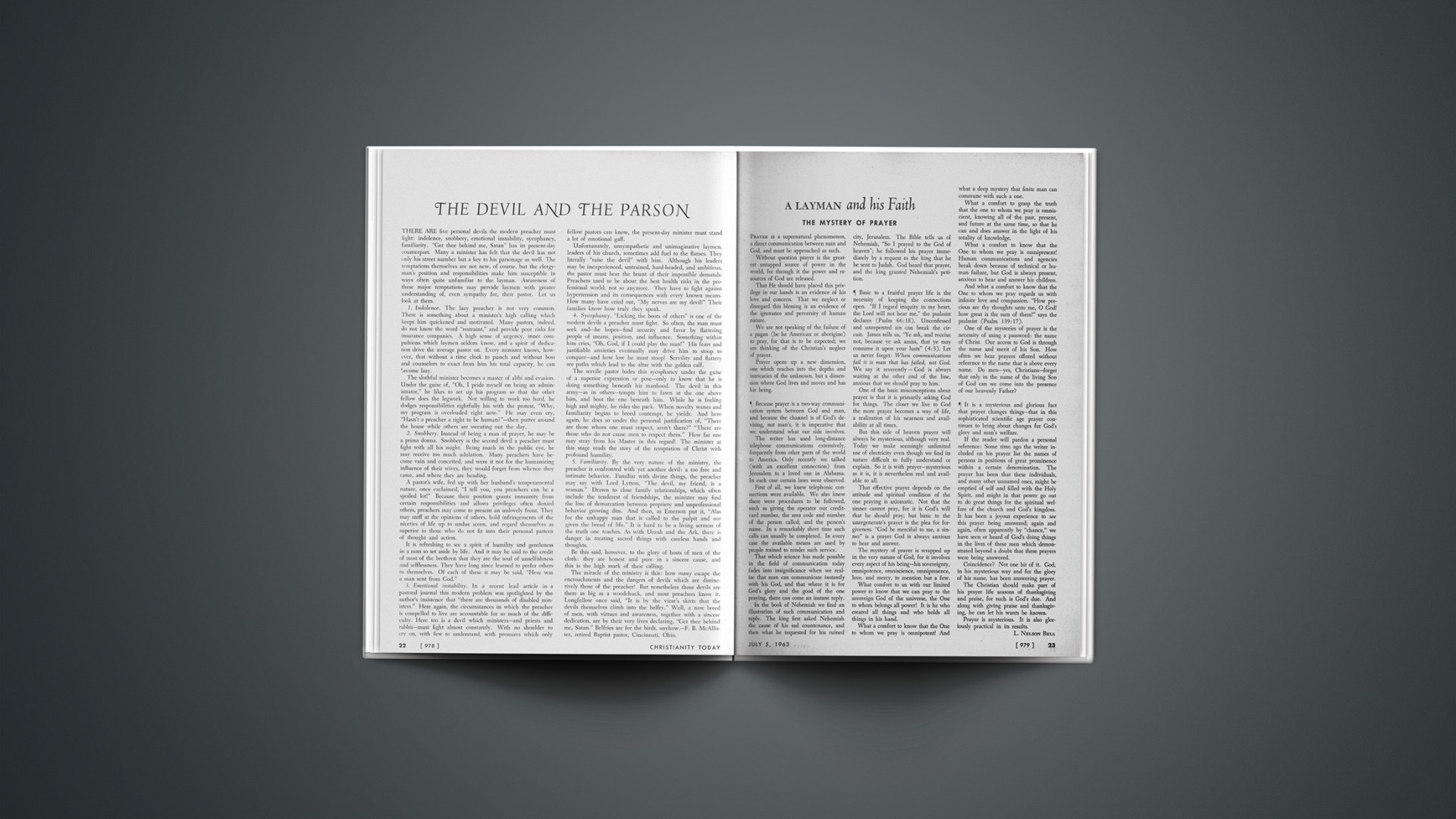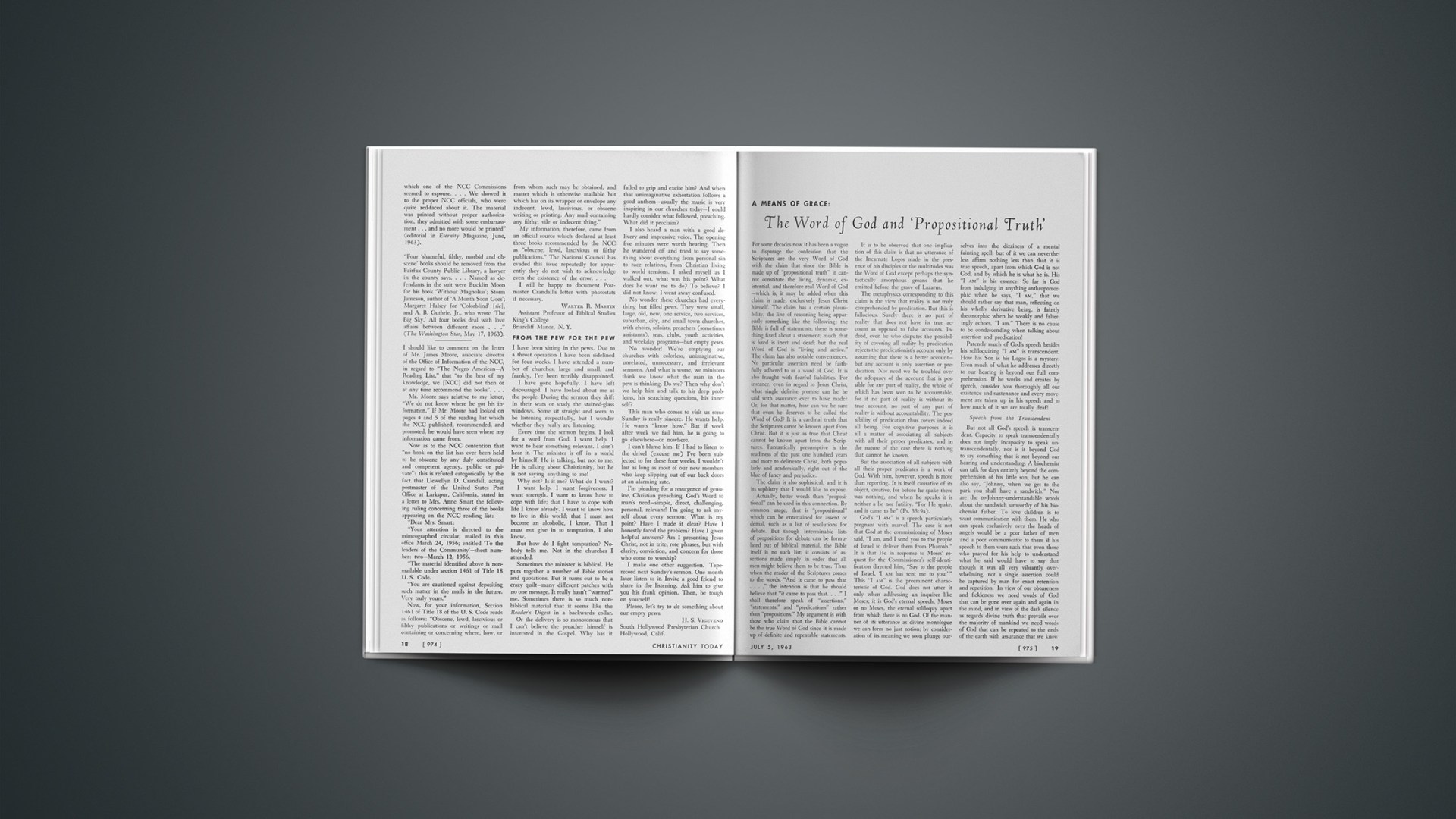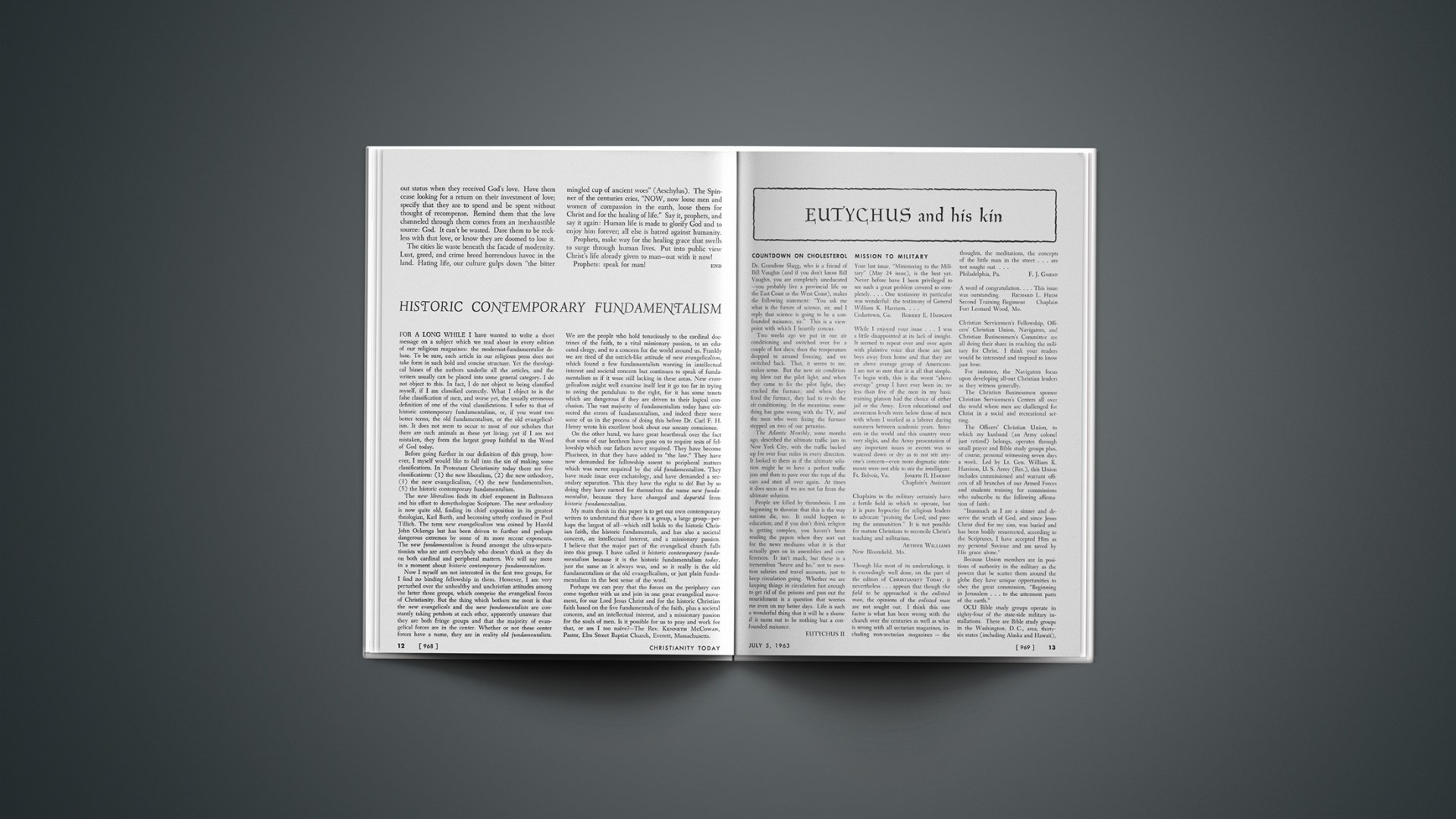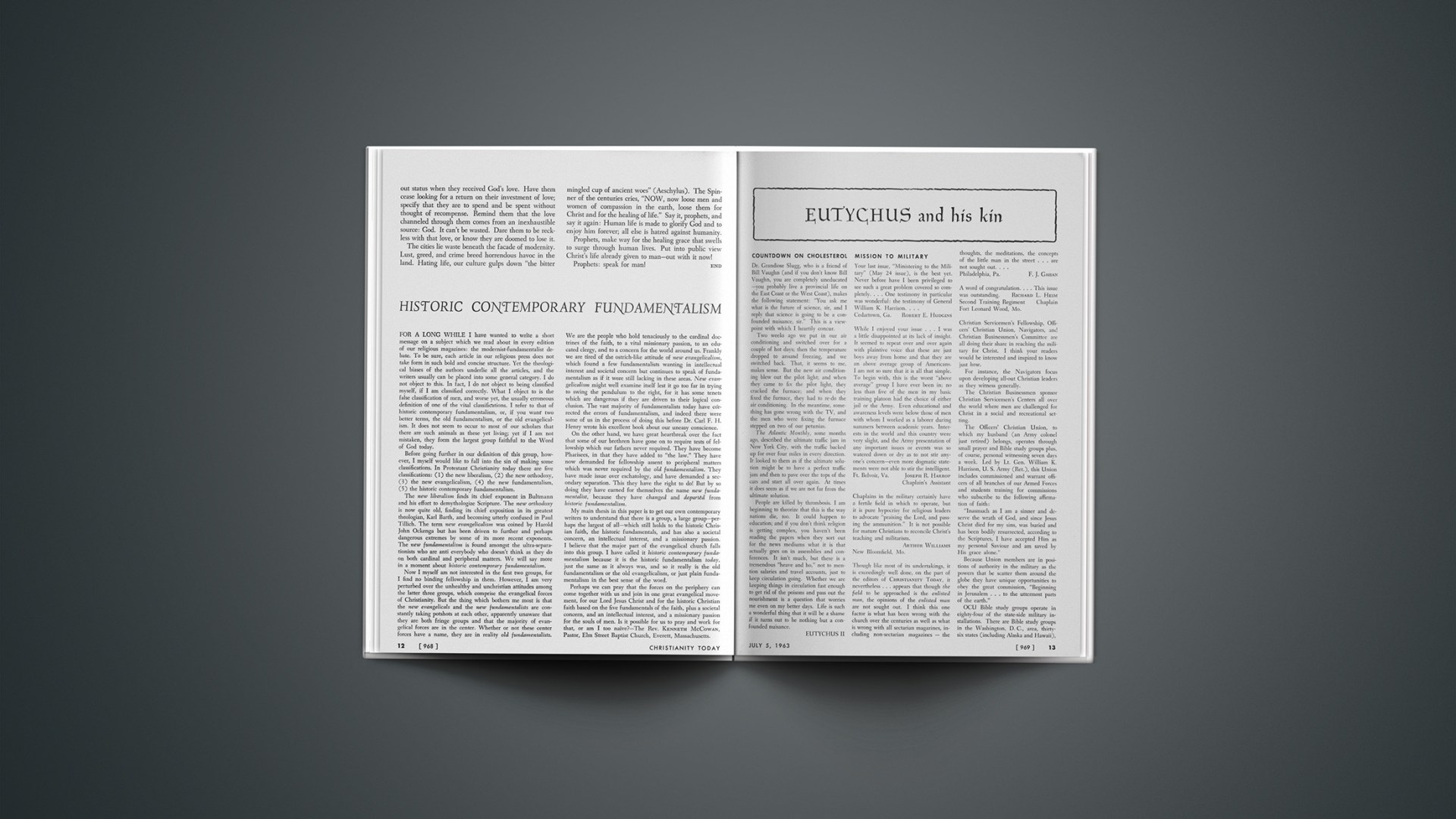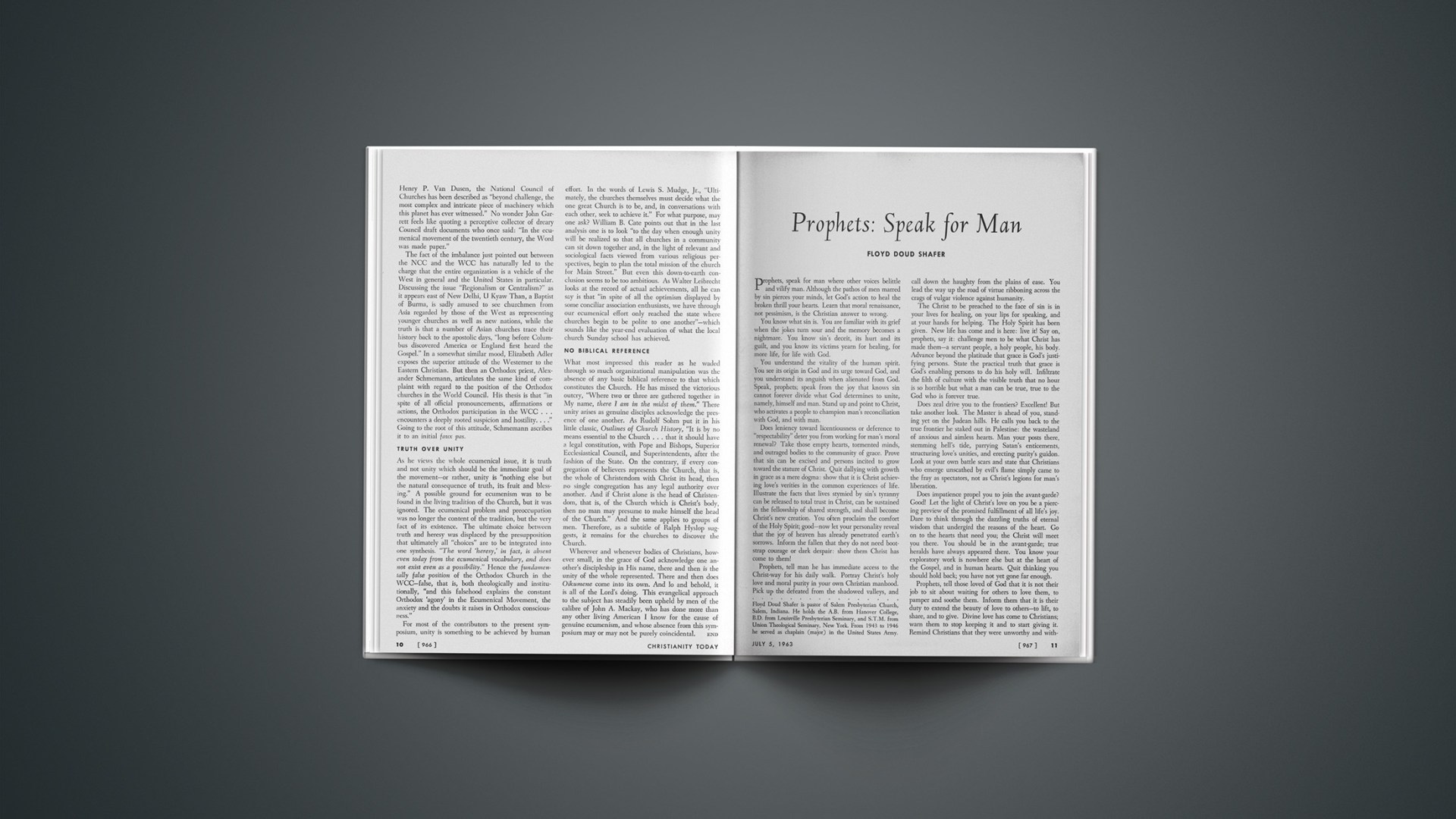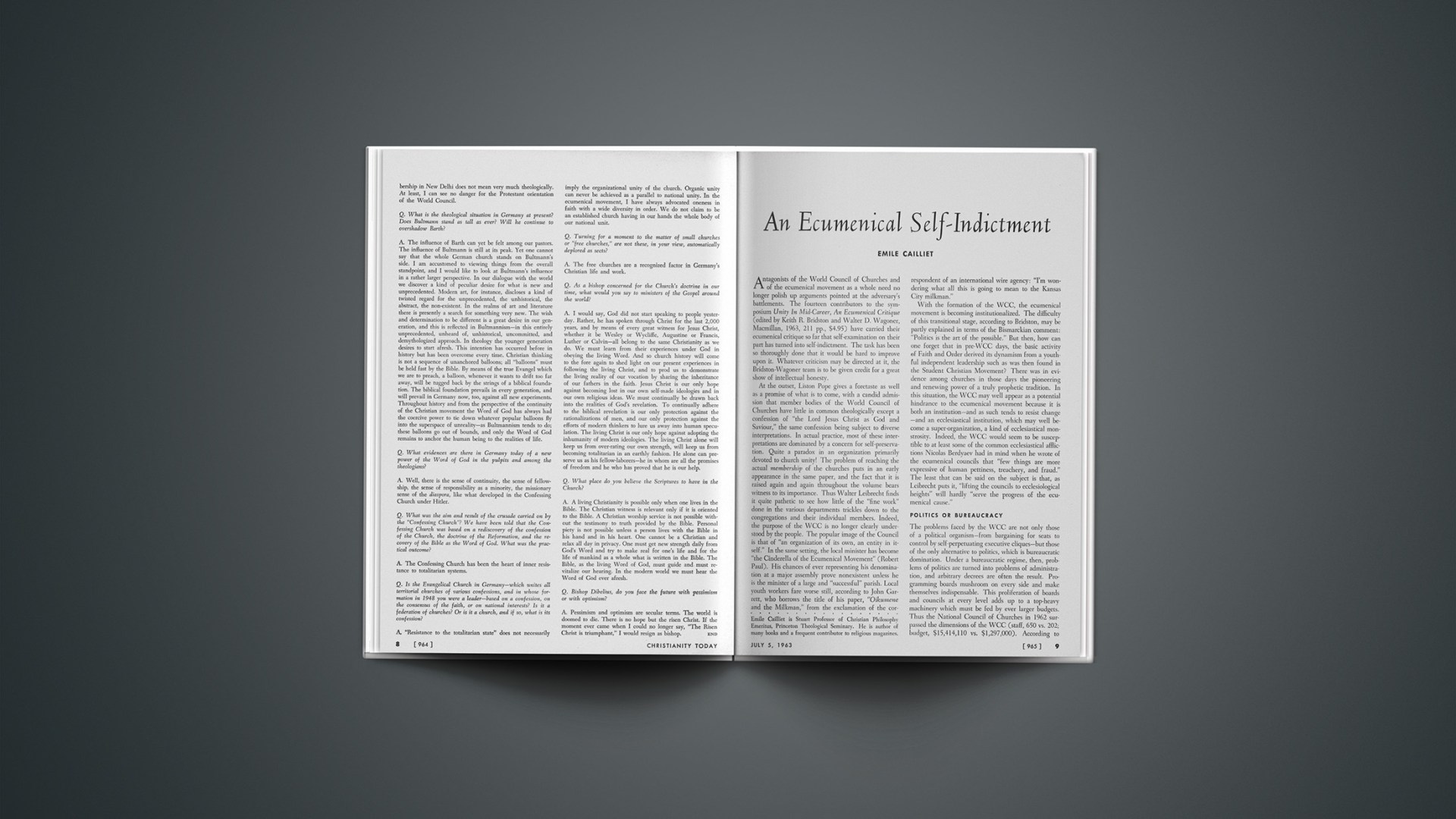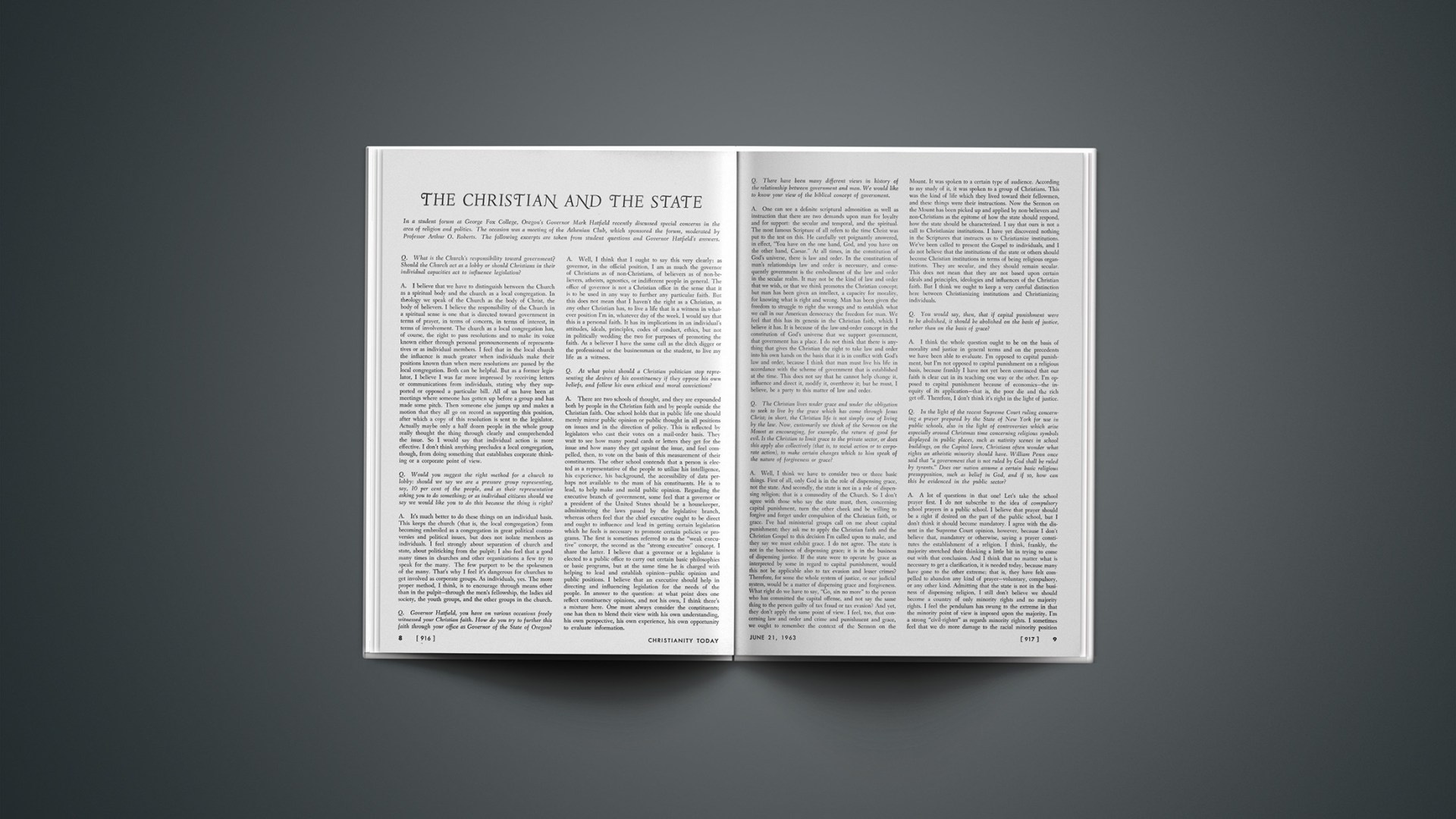Prayer is a supernatural phenomenon, a direct communication between man and God, and must be approached as such.
Without question prayer is the greatest untapped source of power in the world, for through it the power and resources of God are released.
That He should have placed this privilege in our hands is an evidence of his love and concern. That we neglect or disregard this blessing is an evidence of the ignorance and perversity of human nature.
We are not speaking of the failure of a pagan (be he American or aborigine) to pray, for that is to be expected; we are thinking of the Christian’s neglect of prayer.
Prayer opens up a new dimension, one which reaches into the depths and intricacies of the unknown, but a dimension where God lives and moves and has his being.
Because prayer is a two-way communication system between God and man, and because the channel is of God’s devising, not man’s, it is imperative that we understand what our side involves.
The writer has used long-distance telephone communications extensively, frequently from other parts of the world to America. Only recently we talked (with an excellent connection) from Jerusalem to a loved one in Alabama. In each case certain laws were observed.
First of all, we knew telephonic connections were available. We also knew there were procedures to be followed, such as giving the operator our credit-card number, the area code and number of the person called, and the person’s name. In a remarkably short time such calls can usually be completed. In every case the available means are used by people trained to render such service.
That which science has made possible in the field of communication today fades into insignificance when we realize that man can communicate instantly with his God, and that where it is for God’s glory and the good of the one praying, there can come an instant reply.
In the book of Nehemiah we find an illustration of such communication and reply. The king first asked Nehemiah the cause of his sad countenance, and then what he requested for his ruined city, Jerusalem. The Bible tells us of Nehemiah, “So I prayed to the God of heaven”; he followed his prayer immediately by a request to the king that he be sent to Judah. God heard that prayer, and the king granted Nehemiah’s petition.
Basic to a fruitful prayer life is the necessity of keeping the connections open. “If I regard iniquity in my heart, the Lord will not hear me,” the psalmist declares (Psalm 66:18). Unconfessed and unrepented sin can break the circuit. James tells us, “Ye ask, and receive not, because ye ask amiss, that ye may consume it upon your lusts” (4:3). Let us never forget: When communications fail it is man that has failed, not God. We say it reverently—God is always waiting at the other end of the line, anxious that we should pray to him.
One of the basic misconceptions about prayer is that it is primarily asking God for things. The closer we live to God the more prayer becomes a way of life, a realization of his nearness and availability at all times.
But this side of heaven prayer will always be mysterious, although very real. Today we make seemingly unlimited use of electricity even though we find its nature difficult to fully understand or explain. So it is with prayer—mysterious as it is, it is nevertheless real and available to all.
That effective prayer depends on the attitude and spiritual condition of the one praying is axiomatic. Not that the sinner cannot pray, for it is God’s will that he should pray; but basic to the unregenerate’s prayer is the plea for forgiveness. “God be merciful to me, a sinner” is a prayer God is always anxious to hear and answer.
The mystery of prayer is wrapped up in the very nature of God, for it involves every aspect of his being—his sovereignty, omnipotence, omniscience, omnipresence, love, and mercy, to mention but a few.
What comfort to us with our limited power to know that we can pray to the sovereign God of the universe, the One to whom belongs all power! It is he who created all things and who holds all things in his hand.
What a comfort to know that the One to whom we pray is omnipotent! And what a deep mystery that finite man can commune with such a one.
What a comfort to grasp the truth that the one to whom we pray is omniscient, knowing all of the past, present, and future at the same time, so that he can and does answer in the light of his totality of knowledge.
What a comfort to know that the One to whom we pray is omnipresent! Human communications and agencies break down because of technical or human failure, but God is always present, anxious to hear and answer his children.
And what a comfort to know that the One to whom we pray regards us with infinite love and compassion. “How precious are thy thoughts unto me, O God! how great is the sum of them!” says the psalmist (Psalm 139:17).
One of the mysteries of prayer is the necessity of using a password: the name of Christ. Our access to God is through the name and merit of his Son. How often we hear prayers offered without reference to the name that is above every name. Do men—yes, Christians—forget that only in the name of the living Son of God can we come into the presence of our heavenly Father?
It is a mysterious and glorious fact that prayer changes things—that in this sophisticated scientific age prayer continues to bring about changes for God’s glory and man’s welfare.
If the reader will pardon a personal reference: Some time ago the writer included on his prayer list the names of persons in positions of great prominence within a certain denomination. The prayer has been that these individuals, and many other unnamed ones, might be emptied of self and filled with the Holy Spirit, and might in that power go out to do great things for the spiritual welfare of the church and God’s kingdom. It has been a joyous experience to see this prayer being answered; again and again, often apparently by “chance,” we have seen or heard of God’s doing things in the lives of these men which demonstrated beyond a doubt that these prayers were being answered.
Coincidence? Not one bit of it. God, in his mysterious way and for the glory of his name, has been answering prayer.
The Christian should make part of his prayer life seasons of thanksgiving and praise, for such is God’s due. And along with giving praise and thanksgiving, he can let his wants be known.
Prayer is mysterious. It is also gloriously practical in its results.

